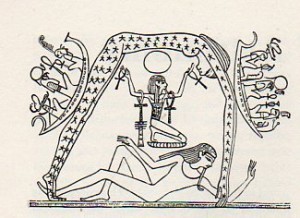 There is a pervasive meme in the physics community that holds as follows: there are many physical phenomena that don’t correspond in any easy way to our ordinary experiences of life on earth. We have wave-particle duality wherein things behave like waves sometimes and particles other times. We have simultaneous entanglement of physically distant things. We have quantum indeterminacy and the emergence of stuff out of nothing. The tiny world looks like some kind of strange hologram with bits connected together by virtual strings. We have a universe that began out of nothing and that begat time itself. It is, in this framework, worthwhile to recognize that our every day experiences are not necessarily useful (and are often confounding) when trying to understand the deep new worlds of quantum and relativistic physics.
There is a pervasive meme in the physics community that holds as follows: there are many physical phenomena that don’t correspond in any easy way to our ordinary experiences of life on earth. We have wave-particle duality wherein things behave like waves sometimes and particles other times. We have simultaneous entanglement of physically distant things. We have quantum indeterminacy and the emergence of stuff out of nothing. The tiny world looks like some kind of strange hologram with bits connected together by virtual strings. We have a universe that began out of nothing and that begat time itself. It is, in this framework, worthwhile to recognize that our every day experiences are not necessarily useful (and are often confounding) when trying to understand the deep new worlds of quantum and relativistic physics.
And so it is worthwhile to ask whether many of the “rational” queries that have been made down through time have any intelligible meaning given our modern understanding of the cosmos. For instance, if we were to state the premise “all things are either contingent or necessary” that underlies a poor form of the Kalam Cosmological Argument, we can immediately question the premise itself. And a failed premise leads to a failed syllogism. Maybe the entanglement of different things is piece-part of the entanglement of large-scale space time, and that the insights we have so far are merely shadows of the real processes acting behind the scenes? Who knows what happened before the Big Bang?
In other words, do the manipulations of logic and the assumptions built into the terms lead us to empty and destructive conclusions? There is no reason not to suspect that and therefore the bits of rationality that don’t derive from empirical results are immediately suspect.… Read the rest